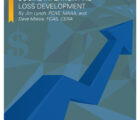As I was writing this column, I got distracted by thoughts of my grandchildren. My wife and I “hire” them to do work around the house. It’s a good situation for all: They get to earn some spending money while learning the value of work, and we get some help with chores — but most importantly, we all get to spend time together.
My grandchildren are priceless to me — their worth cannot be measured — yet when my wife and I hire them, how much they get paid depends on the tasks and on their abilities. It also depends on who is the “payer.” My wife pays our grandchildren about twice the rate I pay. So who pays also has a bearing on the transaction value.
Sometimes a distraction can be inspiration….
Actuaries are Knowledge Workers
Peter F. Drucker coined the term “knowledge workers” in Landmarks of Tomorrow in the late 1950s. He expanded the scope of the term in Management Challenges for the 21st Century, writing:
[K]nowledge workers must know more about their job than their boss does — or else they are no good at all. In fact, that they know more about their job than anybody else in the organization is part of the definition of knowledge workers.1
Thus, the value of knowledge workers’ output translates into just how much they should get paid; this is far different from assessing what knowledge workers are worth, however.
Keep in mind that your inherent worth is not the same as what people are willing to pay you to do something.
BusinessDictionary.com defines knowledge workers as employees “such as data analysts, product developers, planners, programmers, and researchers who are engaged primarily in acquisition, analysis, and manipulation of information as opposed to production of goods or services.”2 Actuaries’ numerous responsibilities exactly fit the definition envisioned by Drucker, including roles as data scientists, analysts, modelers, researchers and presenters.
For simplicity, I will refer to the knowledge worker’s output as simply the “product.” The employer, boss, client or other customer will be called “the customer.” The actuary as a knowledge worker is the “producer” of information.
What is Our Product Worth?
Our product is timely, understandable, accurate and actionable information in the form of analysis and observations.
Our product’s value is realized in a transaction with a buyer or customer in a particular environment. The value is not realized until the transaction happens. If customers believe that the value exceeds the cost and they have the funds, they will likely make the purchase. If you accept that premise, it establishes a few parameters for the value of a product.
First, worth is not measured by the effort put forth by the producer. Neither is it measured by the cost of goods, raw materials or any other output of the producer. Worth is only measured by the perceived value to the customer. Look at the price-to-book value compared to the price of any of the major stock indices. On average, the price is 50 percent to 100 percent above the book value. If perception is worthless, why are people paying well above book value for a stock? And not just for one stock, but for the market as a whole!
Again, worth only counts when a transaction occurs, whether it is to hire someone, to enter into a contract, or to make an outright purchase. You don’t make money on a stock until you sell it at a gain.
To make the transaction, customers need to believe that:
- The producer can deliver the desired product, including whatever attributes the customer deems necessary. For us, that usually means timely, understandable, accurate and actionable information.
- The value to them is greater than the cost to them.
- The good or service selected is the “best deal” among competing offers, including “no transaction,” i.e., the status quo.
Of course, buyers must have the discretionary funds to pay for the transaction.
The Value of the Product v. the Amount of Effort
The customer does not care how hard the actuarial exams are or how long it took you to pass them. Pontificating about your effort or what it took to get your credentials is worse than wasting time; it is wasting the opportunity to convey information truly important to customers. It cuts into your “word allotment,” the amount of attention listeners are willing to expend before they quit listening.
Effort has to do with the willingness of the provider to enter into the transaction. If the effort is too great for the reward (pay), the transaction will not happen. Effort sets a minimum price for the producer. The only effort customers care about is the effort they think it would take to do the same task, or possibly the effort of a competing producer.
Then what do customers care about regarding you? They care that you are capable of delivering the desired product, in all of its required aspects, including speed, accuracy, cost and whatever else they deem important.
You need to spend your word allotment on how you can provide what the customer wants, not how much effort it will take you. If you did it before, say so and give results. Remember, it is not the intrinsic value of the product, but the value perceived by the customer that is important.
To a new car buyer, a vehicle’s most important feature might be its perceived reliability. Whatever it is, the matching of the product to a need or desire is central to making the transaction happen. This is why a good car salesperson will ask you what you want in a car at the start of the sales conversation.
Asserting Your Value: Questions to Ask
One question you should ask yourself is: “Am I conveying a sense of competence to my customers? Does they believe I can provide the product they need, i.e., that I can do the job they wants me to do?”
The value versus cost tradeoff is complex. I say “cost to the customer” on purpose. It is different from the cost to the company. Cost to the individual includes the time she and her staff will need to spend with the producer in getting the scope, materials, etc., necessary to complete the project. While it will have an impact on the budget, if the project is already contemplated in the budget, the “cost” will likely be zero. (This is especially true when “use it or lose it” tends to be the unwritten budgetary rule.)
Underlying the value to the customer is the question “What is important?” Not what is important to the company, necessarily, but what is important to the individual making the decision to purchase or not. It is a subtle but important difference.
The second question is: “Am I conveying how the value of my product exceeds the cost to the customer, and at a sufficient level to make a transaction attractive?”
The value of each of the potential expenditures is weighed against others in an effort to get the biggest return. Do not forget that the customer’s staff time is included as a cost. Sometimes the project with the best financial return will not be the one that is funded, in deference to the one with the best career-enhancing return for the buyer (customer). It is the customer’s perception of the value that matters, not the true or intrinsic value.
The next question is: “Is completing a transaction with you the best deal among competing opportunities the customer has available, including doing nothing?”
The amount of discretionary funds the purchasers have available sets a maximum for the spending capacity and thus indirectly a maximum amount they are willing or able to spend on the product.
Another question to ask, even before you approach potential customers, is whether it is likely that they will have the financial resources to be willing and able to pay for your product. If the answer is “no,” don’t waste your time.
Insuring a Ready Supply of Producers
The last question to ask yourself is, “What value does this customer place on my work?”
When my grandchildren are at the house and want to earn some money, they ask their grandmother, not me. They know that she will pay them more than I will for a given task. She always gets them to work, and I have a high “unemployment rate.” Even if I were to increase what I was willing to pay to their grandmother’s wage level, they likely would not work for me thinking something was undisclosed.
So the next time you feel you are underpaid (or underappreciated), think about what you can do to elevate your stature in the eyes of the person you wish would pay you more, i.e., your customer.
As for me, I need to work on labor negotiations with my grandkids.
Grover Edie, FCAS, is the AR Editor in Chief.
1 Drucker, P. 1999. Management Challenges for the 21st Century. HarperCollins: New York.
2 http://www.businessdictionary.com/definition/knowledge-worker.html











